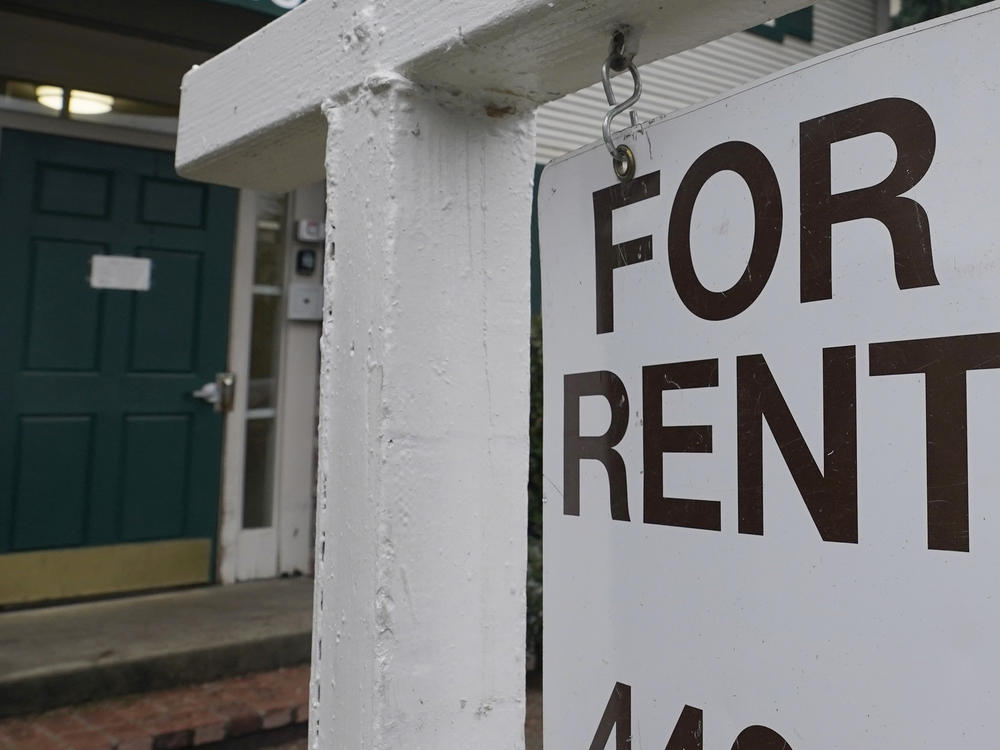Section Branding
Header Content
Rents Are Out Of Reach For Most Americans Earning Minimum Wage, A Study Says
Primary Content
American renters are well aware of the dire housing market situation and a new report confirms that it's only likely to worsen unless hourly wages are drastically increased.
Workers simply don't earn enough money to keep up with skyrocketing rental rates across the country, the National Low Income Housing Coalition found in its latest Out of Reach report.
"In no state, metropolitan area, or county in the U.S. can a worker earning the federal or prevailing state or local minimum wage afford a modest two-bedroom rental home at fair market rent by working a standard 40-hour work week," the report released on Wednesday finds.
The coalition tracks how much money a person would have to earn to afford an apartment or other rental at fair market rent in their community. Additionally, the report defines "affordable" as 30% or less of a person's income.
On average, a renter in search of a modest two-bedroom home, who is seeking to stay within the 30% income window, needs to earn $24.90 per hour, the study says. (That figure is more than 3.4 times the federal minimum wage.) Those in search of a one-bedroom are in a similar position; they need to make $20.40 per hour.
Meanwhile, affordable units are increasingly rare. An analysis shows that only in 218 of more than 3,000 counties nationwide can a full-time minimum wage worker afford a one-bedroom rental home at fair market rent without dipping into income that should be used for all other living expenses and savings.
A stagnant federal minimum wage is exacerbating the housing crisis for low-income renters
Obviously, rates vary zip code by zip code but the authors state "low-wage workers everywhere struggle to afford their housing" in light of stagnant federal minimum wages. The hourly rate has been stuck at $7.25 since 2009 despite the rising cost of living.
Even in places where a higher minimum wage has been implemented, lower income non-homeowners face extreme financial hardship. California, where 45% of households are living in rentals, ranks number one as the most expensive rental market, despite the fact that the statewide minimum wage is as high as $14 an hour, depending on the size of the company.
Still, according to the report, a person making $14 an hour would have to work 89 hours a week to cover the rent on a "modest" one bedroom, which is estimated to be $1,615 per month.
The annual report states affordable rents are most elusive for renters of color who are most likely to have low-wage earning jobs and are, therefore, at greater risk of eviction.
Copyright 2021 NPR. To see more, visit https://www.npr.org.

